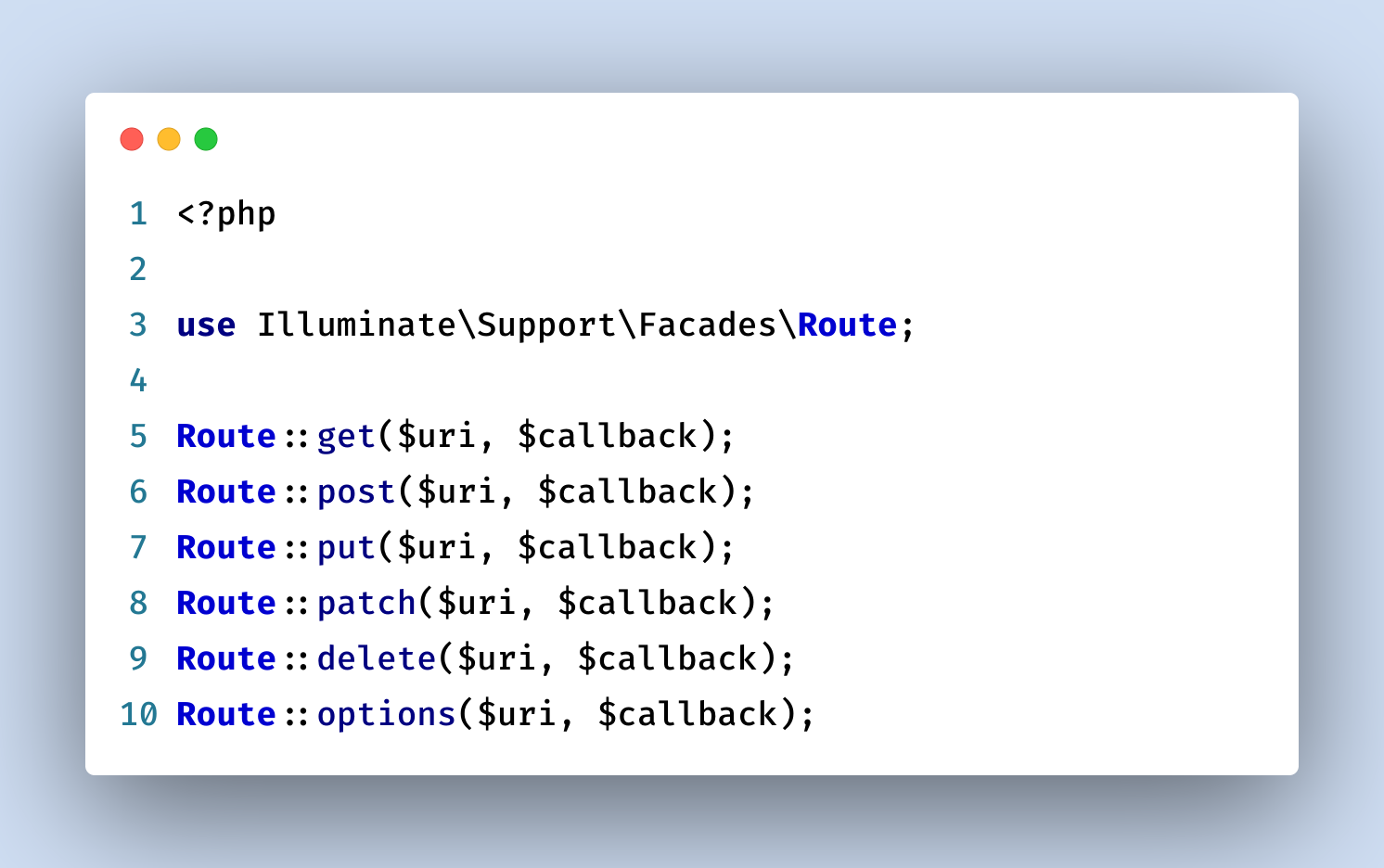Laravel provides us with a convenient way of routing. We can easily accept a URI with closure in Laravel routing. The router allows you to register routes that respond to any HTTP request. The available routes in Laravel 9 are given below:

routes/web.php
<?php
use Illuminate\Support\Facades\Route;
Route::get($uri, $callback);
Route::post($uri, $callback);
Route::put($uri, $callback);
Route::patch($uri, $callback);
Route::delete($uri, $callback);
Route::options($uri, $callback);
Here get, post, put, patch, delete and options are the request type. The most basic Laravel routes accept a URI and closure like the below:
routes/web.php
<?php
use Illuminate\Support\Facades\Route;
Route::get('/greeting', function () {
return 'Hello World';
});
Now if you visit the below URL, then you will see the Hello World output.
URL
Define route with controller and method
Laravel gives us a convenient way of defining routes with a controller and a method. See the below example of defining a route with a controller:
routes/web.php
<?php
use Illuminate\Support\Facades\Route;
use App\Http\Controllers\TestController;
Route::get('/user', [TestController::class, 'index']);
Look at this route, here /user is the URI and UserController is the controller and index is the method of this controller. Now define the index method in your controller like:
App\Http\Controllers\TestController
<?php
namespace App\Http\Controllers;
use Illuminate\Http\Request;
class TestController extends Controller
{
public function index()
{
return "Hello World";
}
}
Now if you visit the /user URL then you will see the same output as before.
